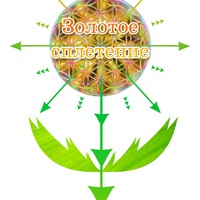
Подставь в Perfekt вспомогательный глагол haben или sein в требуемой форме. 1. _____ du Anna
gesehen 0
0
 0
0
Ответы на вопрос
 Внимание! Ответы на вопросы дают живые люди. Они могут содержать ошибочную информацию, заблуждения, а также ответы могут быть сгенерированы нейросетями. Будьте внимательны. Если вы уверены, что ответ неверный, нажмите кнопку "Пожаловаться" под ответом.
Внимание! Ответы на вопросы дают живые люди. Они могут содержать ошибочную информацию, заблуждения, а также ответы могут быть сгенерированы нейросетями. Будьте внимательны. Если вы уверены, что ответ неверный, нажмите кнопку "Пожаловаться" под ответом.

Haben du Anna gesenen
 0
0
 0
0

Ответ:
Hast du Anna gesehen?
ich habe
du hast
er, sie, es hat
wir haben
ihr habt
sie, Sie haben
 0
0
 0
0

To fill in the blank in the given sentence and use the correct auxiliary verb in the Perfekt tense, we need to determine whether the main verb "gesehen" requires the auxiliary verb "haben" or "sein".
In general, most verbs in German use the auxiliary verb "haben" in the Perfekt tense. However, there are a few verbs that use the auxiliary verb "sein". These verbs are often related to motion or change of state.
To determine which auxiliary verb to use, we need to consider the verb "gesehen". Since "gesehen" is the past participle of the verb "sehen" (to see), which does not involve motion or change of state, we can conclude that it requires the auxiliary verb "haben".
Therefore, the correct form to fill in the blank is:
1. Hast du Anna gesehen?
Please note that the verb "haben" should be conjugated to match the subject "du" in the sentence. In this case, the second-person singular form "hast" is used.
I hope this helps! Let me know if you have any further questions.
 0
0
 0
0
Похожие вопросы
Топ вопросов за вчера в категории Немецкий язык
Последние заданные вопросы в категории Немецкий язык
-
Математика
-
Литература
-
Алгебра
-
Русский язык
-
Геометрия
-
Английский язык
-
Химия
-
Физика
-
Биология
-
Другие предметы
-
История
-
Обществознание
-
Окружающий мир
-
География
-
Українська мова
-
Информатика
-
Українська література
-
Қазақ тiлi
-
Экономика
-
Музыка
-
Право
-
Беларуская мова
-
Французский язык
-
Немецкий язык
-
МХК
-
ОБЖ
-
Психология
-
Физкультура и спорт
-
Астрономия
-
Кыргыз тили
-
Оʻzbek tili























